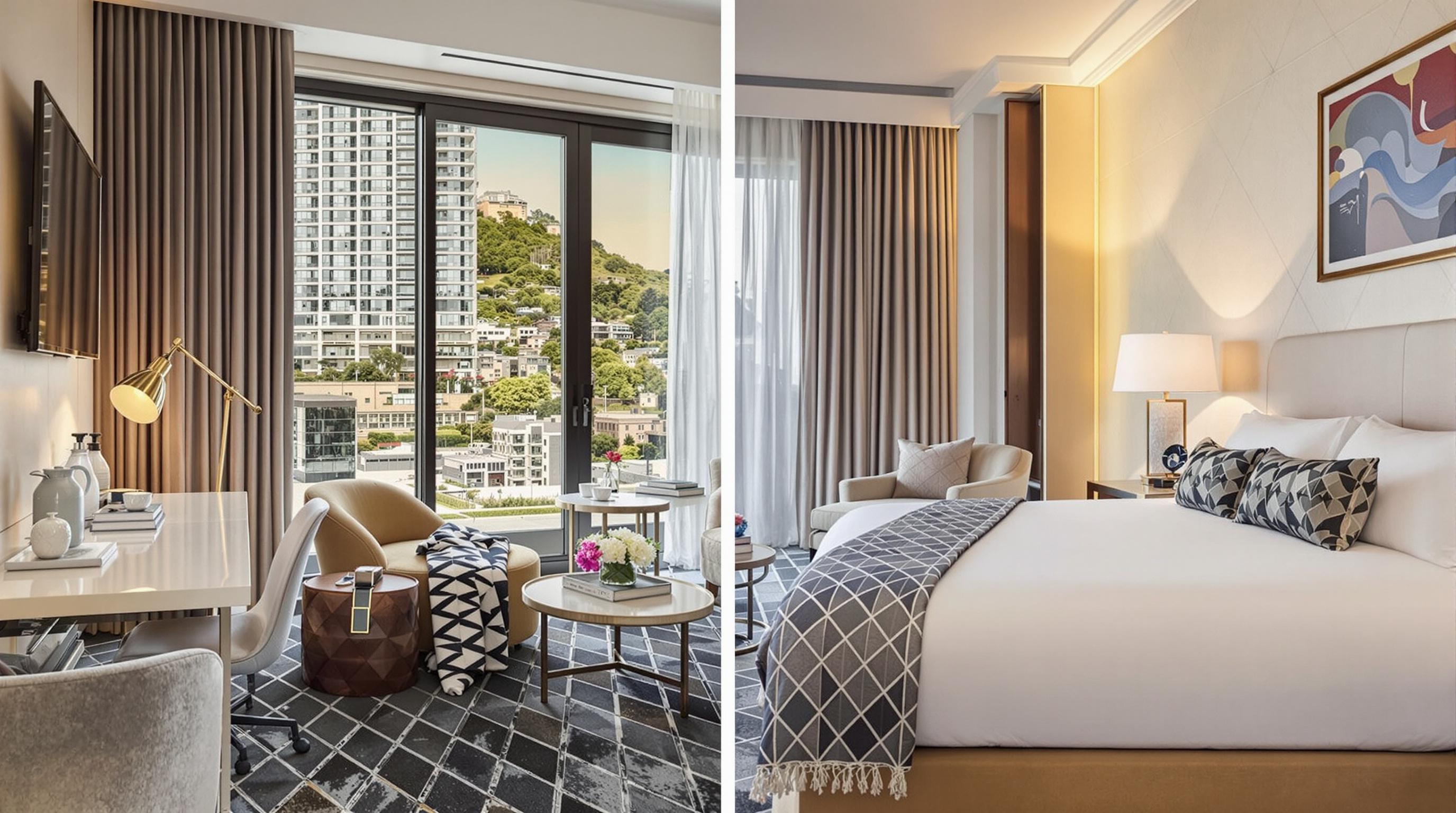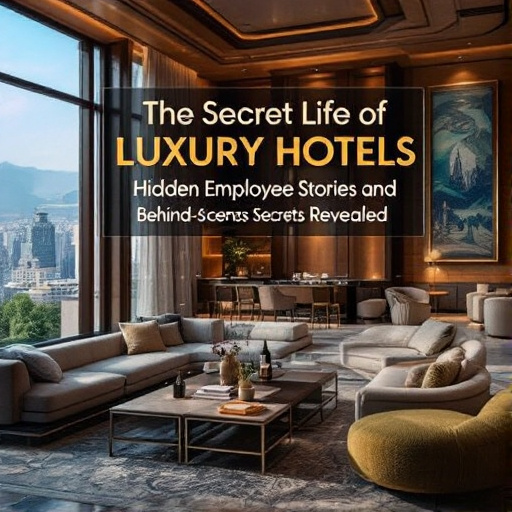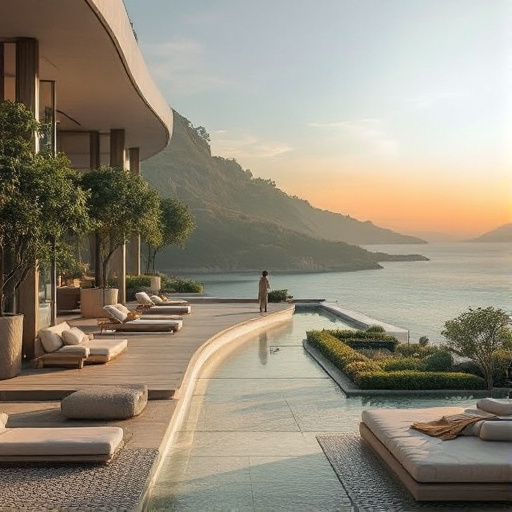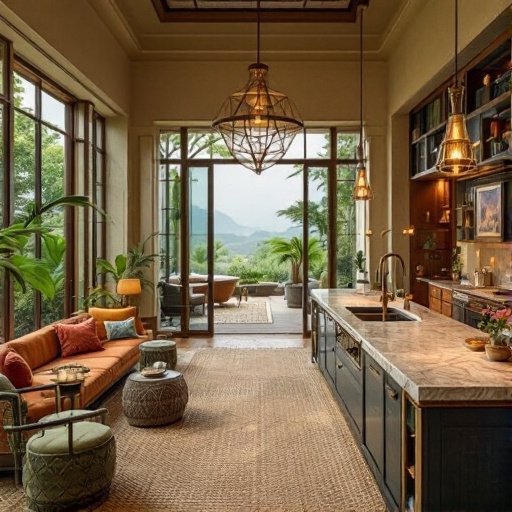Featured Articles
- 7 Unseen Amenities in Luxury Hotels That Transform a Stay into an Exclusive, Personalized Experience
- "Beyond Opulence: Exploring the Rise of Sustainability in Luxury Hotel Design"
- "How Eco-Friendly Luxury Hotels Are Reshaping Sustainable Travel: A Glimpse Into the Future of Opulence"
- The Rise of Eco-Luxury: How Sustainability is Shaping the Future of Upscale Hospitality
- The Rise of Eco-Luxury: How Sustainable Practices are Redefining High-End Hospitality
The Rise of Eco-Luxury: How Sustainable Practices are Redefining High-End Hospitality
The Rise of Eco-Luxury: How Sustainable Practices are Redefining High-End Hospitality
The rise of eco-luxury is transforming high-end hospitality into a space where sustainability meets extravagance. This shift is not just about aesthetics; it’s a movement redefining the meaning of luxury, embracing eco-consciousness at every touchpoint, and appealing to a new generation of discerning travelers.
The Green Revolution in Hospitality
In the past, luxury was often synonymous with excess. However, the green revolution is reshaping this narrative—a turning point hailed by environmentalists and luxury lovers alike. According to a survey by Lux Research, 82% of luxury consumers are now willing to pay extra for sustainable products and services (Lux Research, 2020). This statistic reveals a fascinating insight: what was once a niche consideration has become an essential expectation among today’s affluent clientele.
Enter the Eco-Luxury Hotel
Imagine a scenario where the walls of an opulent hotel are equipped with solar panels, the furniture is sustainably sourced, and guests are treated to organic, locally sourced meals prepared by world-class chefs. One prime example of this blend is the Six Senses Hotel brand. With locations in exotic regions like Bali and the Maldives, Six Senses leads the charge in sustainable luxury. Their commitment not only to eco-friendliness but also to community engagement demonstrates that high-end hospitality can effectively incorporate thoughtful practices (Six Senses, 2023).
From Waste to Wealth
Here’s where sustainability gets imaginative: many eco-luxury establishments are turning waste into resources. For instance, the Fairmont Hotel chain has initiated a unique program to repurpose kitchen waste into organic fertilizers, significantly reducing landfill contributions. According to their reports, Fairmont properties recycle or compost over 80% of their waste, making a significant impact on the environment while enhancing their agricultural practices (Fairmont, 2022).
Experience That Transcends Materialism
Remember that moment during a vacation when you found true peace while meditating beside a crystalline waterfall or breathing in the scent of a lush forest? Eco-luxury brands are tapping into that serenity, emphasizing experiences over possessions. The Hotel des Arts in Saigon, Vietnam, for instance, combines art and nature, inviting guests to explore the local flora while absorbing the artwork displayed throughout the hotel. It’s these unique experiences that maintain a sense of luxury without causing harm to the environment.
Green Certifications: The New Badge of Honor
As eco-luxury rises, one thing is clear: green certifications have become the ultimate badge of honor among luxury hotels. Various organizations, such as Green Key and LEED (Leadership in Energy and Environmental Design), have stringent requirements that hotels must meet to achieve these certifications. Properties such as the Ritz-Carlton Key Biscayne in Miami have embraced this trend, ensuring that every detail, from energy consumption to water usage, showcases their commitment to sustainability. These credentials are no longer just a marketing tool; they distinguish the genuine from the superficial.
The Economic Argument for Eco-Luxury
Let's talk dollars. Investing in sustainable practices can lead to operational savings, lower energy bills, and an improved bottom line. A report by the International Finance Corporation (IFC) found that energy-efficient buildings can save up to 40% on energy costs compared to traditional types. Not to mention, these savings contribute to long-term profitability—a compelling reason for more hotels to adopt eco-friendly practices.
A Case Study of Success: The Brando
Perhaps one of the most breathtaking examples of eco-luxury in action is The Brando, an exclusive resort located on the private island of Tetiaroa in French Polynesia. This resort not only showcases luxury at its pinnacle—think personal villas with private pools—but emphasizes sustainable living. For instance, the resort is powered by renewable energy and practices a zero waste policy while its guests indulge in fine dining made from local, organic ingredients (The Brando, 2023). Inspirational in both ethical practices and guest offerings, The Brando sets a standard that many aspire to achieve.
Eco-Conscious Luxury: A Shift in Consumer Behavior
As we unravel the rise of eco-luxury, it’s fascinating to note how consumer behavior is evolving. Millennial and Gen Z travelers are more inclined to book stays at hotels that mirror their values. A study from Booking.com reports that 72% of travelers are more likely to choose a travel provider that has sustainability initiatives, highlighting a fundamental shift in what luxury means to the modern traveler (Booking.com, 2023). For many, it’s about leaving the world a better place rather than simply indulging in lavish amenities.
The Role of Technology in Eco-Luxury
Advancing technology is another game changer in the eco-luxury landscape. Smart hotels now utilize IoT (Internet of Things) to optimize energy usage. For instance, the Four Seasons Hotel in Toronto employs smart thermostats to control room temperatures efficiently, ensuring that energy is not wasted when guests are away—blending luxury with sustainability. Guests might engage in a personalized experience while also contributing to the planet's well-being. This seamless integration reflects how technology can aid our transition to greener practices without compromising comfort.
The Big Reveal: Eco-Luxury is Here to Stay
In the grand tapestry of hospitality, eco-luxury is rapidly becoming a key thread. And who said sustainability couldn’t be fashionable? We’re witnessing a time when the elegance displayed in high-end experiences is matched only by the careful attention paid to our planet. Whether you are lounging in a stylish, repurposed chair made from reclaimed wood or enjoying a bathtub filled with organic bath products, eco-luxury opens a conversation about the intersection of indulgence and responsibility.
A Call to Action for the Industry
As we look to the future, the hospitality industry must continue to innovate and embrace sustainable practices. It's an opportunity for brand differentiation and consumer loyalty, two critical components in today’s market. As writer and sustainability advocate Bea Johnson once said, “The future is not a gift. It is an achievement.” We should actively pursue a future where eco-luxury is the norm rather than the exception.
Laughing With Nature
There’s an element of humor in all of this too! Can we admit that our obsession with carbon footprints sounds suspiciously like the latest fashion fad? “Oh darling, I’m only wearing carbon-neutral shoes today,” one might quip. But in essence, this gentle humor highlights a crucial point—the growing willingness of the industry to embrace sustainability as an essential aspect of luxury hospitality, and perhaps, just as fashionable as the latest designer handbag.
Conclusion: The Road Ahead
Eco-luxury is not just a passing trend; it’s a revolution that promises a more sustainable future without sacrificing comfort and sophistication. From experiential offerings that connect travelers with nature to hotels that take real steps against waste and over-consumption, the hospitality industry is transforming. And as advocates for a greener planet, each of us must support these initiatives—not just for ourselves, but for generations to come. So whether you are 16 or 70, why not partake in the eco-luxury experience? After all, indulging in luxury today may very well help preserve our planet for tomorrow.



